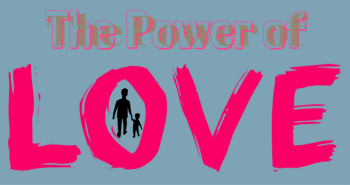The Power of Love

By Marcy Mistrett, CEO
As we celebrate Valentine’s Day this week, and as the Executive Director of a national organization that ends the prosecution of youth in adult court, I am urging us all to embrace ‘the Power of Love’.
Since its inception, the Campaign for Youth Justice (CFYJ), has insisted that impacted youth and families need to be equal partners at the reform table. Why, You might ask? First, because we know that those closest to the problem are best informed on ways to FIX the problem. But beyond that, youth and family advocacy is critical because when drafting reforms, families always remind us of the potential of their child(ren) to learn from their mistakes and make amends, especially if they feel supported and loved. It is this humanity that insists on urgency, resists compromise, and pushes for hope and possibility. Without families and youth at the table—reforms would not go nearly far enough.
Families also see their children more holistically than the Courts, and this is born from unconditional love. On Mother’s Day 2015, we published a series of pictures of mom’s with children incarcerated in adult jails. The pictures were worth 1000 words—mom cradling sweet-faced toddlers and lanky-armed teens—their love palpable through hugs, eye contact, and their smiles.
On Valentine's Day, the organization, Families and Friends of Louisiana’s Incarcerated Children (FFLIC) is holding a social media challenge to send LOVE to Louisiana’s incarcerated children. Because for families, reforms are not just for their own child(ren), but for EVERY child who we have locked away behind prison’s doors.
But what is the power of love in public policy? Is it possible to legislate love?
Washington, DC’s head of Youth Rehabilitation Services, Clinton Lacey, opens every meeting with a message about love. The first time I heard him say it—it was jarring; then, after time, it became comforting—a sort of values statement about the rest of the conversation. Director Lacey says, “These children don’t belong to us. They belong to their families, to their communities, to their homes. They are coming to us for a short time, and we must love them. We must love them and let them know that even though they have landed here, behind our locked doors, that they are precious and loved; That this cannot and will not be their last stop in life. I have watched now how people shift in a room after Director Lacey says this—and it gives me hope. It is a reframe that is not only welcome, but absolutely required if we are going to end our love affair with incarceration.
But legislating love goes beyond individual leaders, it extends to the government. In South Dakota, Tribal Court Advocate, DeAnna Goldtooth, practicing in Arizona shared, to the Navajo, our children are sacred. To put them in a system strips them of their roots, their cultural identity, their sacredness does great harm. We must reunite them with their families and Tribes; ith their ancestors. They need to know they are loved. Tribal systems of justice always have focused on restorative justice, on circles, on cultural context; Tribal governments staunchly resist treating children as adults in the justice system, which is rightly seen as a bigger injustice than whatever behavior brought the child to court in the first place.
Only a week ago in Oakland, a robust group of advocates, attorneys, and community members, some formerly incarcerated, convened to plan the end of the adultification of youth. Over two days, people who had been incarcerated in adult facilities when they were children shared their stories. Stories of trauma, pain, loss, forgiveness, and redemption. They group rejected system-ideas that their families had failed; that systems were designed to help; that violence can be corrected through incarceration. They highlighted that programs can’t solely fix problems, but that ensuring the health of our communities and helping families is without a doubt the best path forward. They opened their arms in a community embrace to try something new: to support each other through the pain, and to create a strong plan for communities to take their children back in love.
Please stay tuned to our social media channels. I invite you to participate in our contest beginning on Feb. 18 to finish this sentence: “If we treated children in the justice system with love, then…” You can respond through a status, tweet, picture, drawing, or any other means that inspires you and share it on social media by tagging the Campaign for Youth Justice and using the hashtag #YouthJustice.
I am confident that as a movement, we CAN legislate love.

